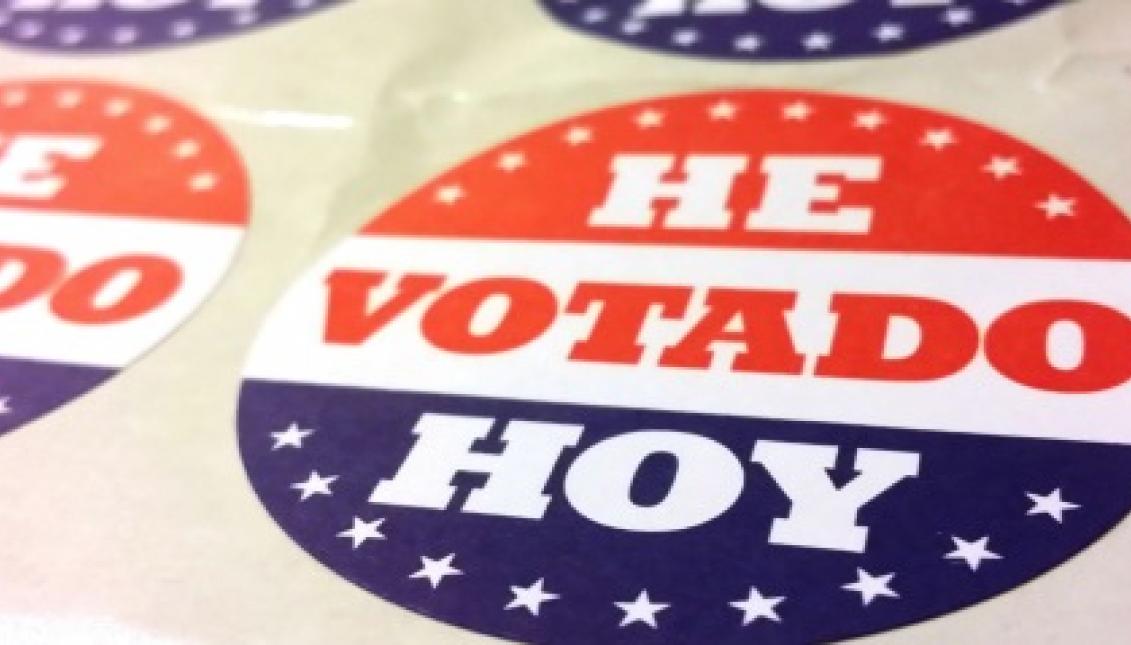
How Latinos will vote
Now that Latinos have begun to have their say in the primaries, here are 15 things that Americans ought to keep in mind about this important constituency:
• Ten states have big Latino populations. Having voted in Nevada, Colorado, and Texas, Latinos go to the polls in Florida and Illinois on March 15, Arizona on March 22, New York on April 19, and California, New Mexico and New Jersey on June 7.
• Three of those states are usually too close to call and often decide presidential elections: Colorado, Nevada and Florida. It’s not a stretch to say that Latinos pick presidents.
• The majority of Latino voters (about 60 percent) are registered Democrats, and a much smaller subset (less than 20 percent) are registered Republicans. The rest mostly describe themselves as independent.
• Yet, when it comes to ideology, most Latinos aren’t liberal. A 2013 survey by Latino Opinions found that Latinos are divided pretty evenly, with 32 percent identifying as conservative, 31 percent as liberal, and 30 percent as moderate.
• And, while neither overly partisan nor blindly ideological, Latinos have repeatedly shown a tendency to vote for the person not the party, and support moderate Republicans who can survive their party’s nominating process.
• Immigration is not the top issue for Latinos ... until it is. When the nativist winds aren’t blowing, Latinos care about education, jobs and the economy, and health care. But when immigration is flaring up, the issue becomes more important to Latinos.
• The GOP’s thickheaded approach to immigration, where the party too often panders to racists and wrongly blames immigrants for a broken immigration system, keeps at arm’s length many Latinos who might otherwise vote for Republican candidates.
• The Democrats’ cynical approach to immigration, where the party caters to organized labor by carrying out deportations and then lazily exploits Republican blunders to win Latino votes, ensures that the community’s support for Democrats is a mile wide but an inch deep.
• While often compared to African-Americans, Latino voters are more like other Catholic immigrant communities such as the Irish and Italians. Fiercely patriotic and integrated into the mainstream, they are full-fledged Americans but also ethnically distinct.
• The Latino vote is not a monolith. There are significant differences based on age, class, generation, education, rural/urban divide, country of origin and other factors. Sometimes, it seems, half the community can’t relate to the other half.
• Latino voting patterns are complicated, nuanced, unpredictable and hard to define. That explains why the media either under-cover the community, or get it all wrong, since the media prefer simple stories and one-dimensional characters.
• Even though they can’t vote, the “Dreamers” are shaking up the political process. These undocumented young people are free agents who criticize politicians across the board and put their goals before the interests of political parties.
• Latino political leaders at the local, state and federal level are usually irrelevant because, whether Republican or Democrat, they tend to put their party before their people. Driven by ambition, they won’t bite the hand that feeds them.
• Latino voters are empowered when they’re in play. Rather than being taken for granted by one party and written off by another, they are most effective when both parties believe they can win their support and are willing to work for it.
• If candidates in both parties venture into the neighborhoods and go looking for Latino support, they’ll find it. But if they go out of their way to antagonize, demonize or patronize Latinos, and look for trouble, they’ll find that too.
As for 2016, Latinos probably won’t vote for Ted Cruz but they might back Marco Rubio, who is perceived as more of a moderate.
If the Republican nominee is Donald Trump, we can expect Latinos to eagerly vote against him. I predict Trump will get about 20 percent of the Latino vote, which would be a new record low. In 1996, Bob Dole got 21 percent.
Of course, Latino revulsion for the GOP will benefit Hillary Clinton. The presumptive Democratic nominee has strong support from Latinos — despite her neglect of the community and support for laws that restrict immigration and fuel mass incarceration. Let’s put it this way: Trump wants to build a wall on the U.S.-Mexico border. While in the Senate, Clinton voted to fund border fencing and bragged about it to voters.
Hey, I said this constituency was important. I didn’t say it was valued, respected or treated well by either party.
Ruben Navarrette’s email address is [email protected].









DEJE UN COMENTARIO:
¡Únete a la discusión! Deja un comentario.